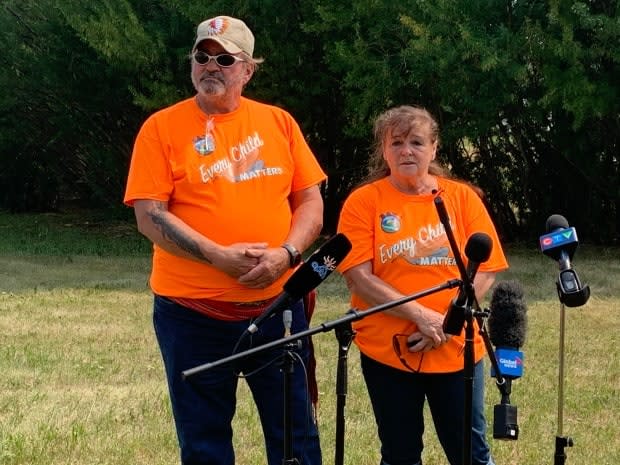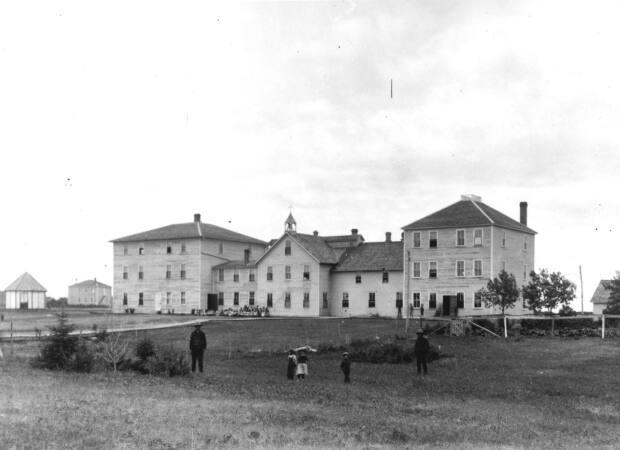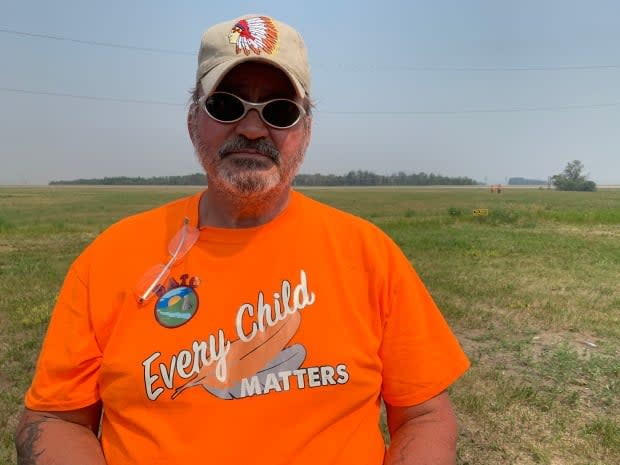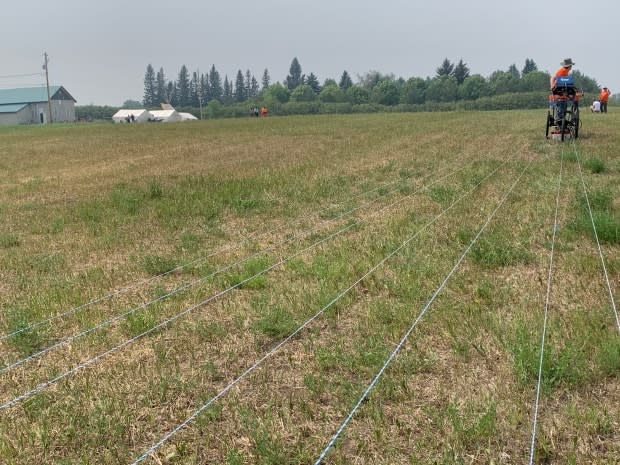What it's like owning land being searched for residential school graves

Warning: This story contains distressing details.
It began with a gift of tobacco.
When Karen Whitecalf, the woman organizing the search for unmarked graves at the former Delmas Indian Residential School site in northwest Saskatchewan, arrived at the home of Doug Montgomery and his wife Donna McBain, she came bearing a gift.
"It's like protocol to us," Whitecalf said. "When we need something, we give tobacco."
Montgomery and McBain own a 13-acre field facing Highway 16, on the northeast edge of the tiny hamlet of Delmas, Sask. The grounds were once home to the Delmas residential school and its cemetery.

Launched in 1901 by the Roman Catholic Church, the school was overcrowded, and students suffered and often died there from a wide range of illnesses such as typhoid, peritonitis, scarlet fever, tuberculosis, jaundice and pneumonia, according to the National Centre for Truth and Reconciliation.
The school closed in 1948 — eight years after an inspector warned it was a fire hazard, according to the national centre.
Now it's the site of the third known ground-penetrating radar search for residential school graves in Saskatchewan, after similar efforts by Muskowekwan First Nation and Cowessess First Nation.
Stories about bodies
As Whitecalf learned, the soft-spoken Montgomery and McBain were glad to help Battlefords Agency Tribal Chiefs (BATC) in its search efforts. Or as McBain put it on Saturday, "to do whatever we can to find answers and try and set a few things straight."
Montgomery and McBain were among the speakers as BATC began its first round of ground-penetrating work at the site this past weekend.
Both wore orange "Every Child Matters" t-shirts. While their remarks were brief, Whitecalf said the search effort would not have been possible without their co-operation.
"I'm grateful that we can help in any way to find whatever may or may not be out there," said Montgomery, who is Métis.

The couple purchased the land two years ago from a bank, as it had been repossessed, Montgomery said.
They initially had no idea about the site's history. Their intention was "just to have a nice quiet place," he said. "It's a beautiful house," he said of the existing home on the land.
Six months after buying the property, Montgomery started hearing stories about bodies in the area, he said.
"It was a little bit scary," he said. "Living in a graveyard is not exactly anybody's cup of tea. It was upsetting."

Montgomery said that according to one story, the man who built the house in 1980 found bodies while digging up the basement.
"This is not really news," Montgomery said. "The elders knew about it. They had mentioned it and I talked to them about it."
No matter what BATC finds, Montgomery said he's prepared to assume a caretaker role.
"We'll be what I call the keepers of the land, then," he said.
Support is available for anyone affected by their experience at residential schools, and those who are triggered by the latest reports.
A national Indian Residential School Crisis Line has been set up to provide support for former students and those affected. People can access emotional and crisis referral services by calling the 24-hour national crisis line: 1-866-925-4419.
Do you have information about unmarked graves, children who never came home or residential school staff and operations? Email your tips to CBC's new Indigenous-led team investigating residential schools: WhereAreThey@cbc.ca.
